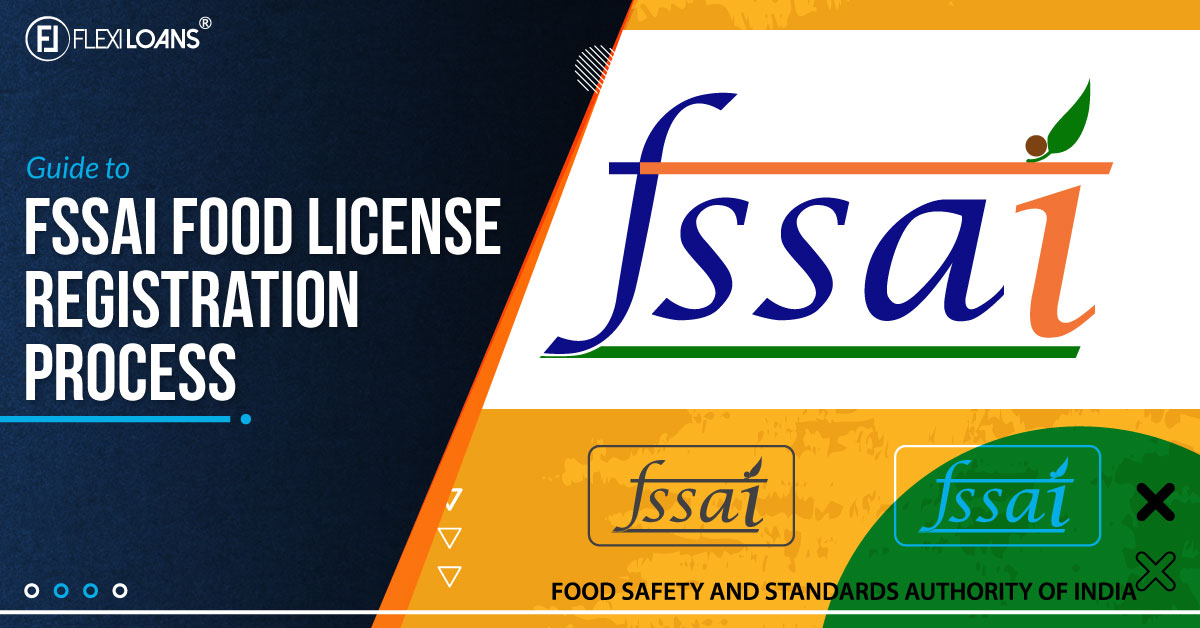Sep 30, 2021

Introduction
The FSSAI is a statutory body under the Ministry of Health & Family Welfare. All the rules and regulations related to food safety and standards fall under the purview of the Food Safety and Standards Authority Act. The act was established in 2006. FSSAI is the apex body to promote and protect public health through various rules and regulations set under the act.
What is FSSAI Registration? Why is it Required?
FSSAI is an autonomous body that sets rules, standards, and regulations for the products related to food. FSSAI full form is Food Safety and Standards Authority of India.
FSSAI is responsible for scrutinising all the food products items and performing a quality check before these products are sold in the market. The FSSAI Act consists of all the bylaws and set rules and regulations that must be followed by the people dealing in the food products.
Such food products are sold in the open market and consumed by people at large. Hence, the Food Safety and Standard Authority of India has an organised mechanism that starts from registration and ends at the quality check of the food product; only then a food product can be sold in the market.
The regulations of the FSSAI Act keep getting amended to make law followed by all. As per FSSAI Act, 2006, it is mandatory for the listed people to take FSSAI License/Registration:
- All the temporary (seasonal) stall vendors selling food.
- Persons engaged in manufacturing or selling food by themselves.
- People engaged in distributing food in social gatherings or religious conventions.
- Small retailers dealing in food products.
These people must obtain FSSAI License to deal in food products. However, an exemption has been given to the caterers distributing food in social gatherings or religious conventions.
Obtaining FSSAI Registration is mandatory legal compliance that gives a green flag to the eligible person dealing with food products in India. FSSAI Registration can be done online by visiting the portal and after paying the FSSAI Registration fees. Loans for a new business dealing in food are also readily available if they wish to expand after obtaining an FSSAI License. The Interest rate for a business loan in India is also bearable on the pocket.
On the other hand, a Food Safety Certificate is issued to the respective brand in the market to sell or manufacture food products. Before starting any food business, obtaining a Food Safety Certificate for such a brand is mandatory.
Eligibility Criteria to Obtain FSSAI License
- FBOs, or Food Business Operators, earning an annual turnover of more than Rs. 12 lakh must take the FSSAI license.
- Small vendors, manufacturers, sellers, and distributors who deal in food products must obtain an FSSAI License.
- All Small Scale Industries or SSIs dealing in the food business are eligible to receive an FSSAI license.
As per the compliance stated in FSSAI Act, 2006, different businesses dealing in mentioned aspects are required to mandatory obtain Food Safety and Standard Authority of India license as soon as they hit the following cap limit:
- Any person selling milk and meat items and hitting the cited cap limit of production must obtain FSSAI License – Food production capacity (milk and meat items not included): Up to 100 kg/litre per day.
- Any person engaged in the collection, handling, and procurement of milk must obtain an FSSAI License if they exceed the specified cap limit – Collection, handling, and procurement of milk: Up to 500 litres/day.
- Any person engaged in the slaughtering of animals must obtain an FSSAI License if he exceeds the specified limit – Slaughtering capacity: 2 large animals or 10 small animals or 50 poultry birds per day.
Types of Food Safety and Standard Authority of India Licenses
FSSAI license registration has been modified in three levels to meet the requirement of the small-scale, medium-scale, and large-scale producers, manufacturers, and dealers dealing in food products. Such categorisation of the registration will help the eligible person check their requirements and apply for the same.
The FSSAI license is further subdivided into three levels:
FSSAI Basic Registration
It is required to be obtained by an eligible person with an annual turnover below Rs. 12 lakh while dealing in the food business.
Documents required for getting a Basic FSSAI license registration
- A recent photograph of yours (passport size)
- A valid ID proof (any of these – PAN or Aadhaar card)
- The address proof of your business premises ( can be any of these – telephone bill having the address of the premises or the electricity bill or water bill)
- A copy of the documents of premises, including valid rent agreement, sales deed (if any), and the NOC (No Objection Certificate)
FSSAI State License
It is required to be obtained by the eligible person with an annual turnover of more than Rs. 12 lakh while dealing in the food business.
Documents required for getting a State FSSAI license registration
- Form-B signed by the owner of the business.
- The Address proof of the property where the food business is conducted (the establishment- hotel or restaurant).
- An accurate blueprint of the area/premises where the establishment ( hotel or restaurant) is situated.
- If the business is a partnership, then the partnership affidavit of the relevant proprietorship.
FSSAI Central License
It is required to be obtained by the eligible person with an annual turnover of more than Rs. 20 crore while dealing in the food business.
Documents required for getting a Central FSSAI license registration
- Completed, signed, and attested form.
- Passport-size photograph.
- Valid identity proof: Aadhaar card, voter ID card, or driving license.
- Valid address proof of the restaurant or business.
- If the business or company has other members such as the directors and/or shareholders, valid identity proof of each member or partner.
- Valid official email ID and a valid official phone number of the business/company (if any) and the owner.
- Proof of the position of the premise: A sales deed, rent agreement, or electricity bill.
- A food safety management system plan.
- Certification of incorporation of the business (if required).
- A National Occupational Classification (NOC) issued from the municipal corporation.
- Valid medical certificates of all the employees or partners (if any) to ensure hygiene and quality checks.
SME Business loans can assist any food business that has the expectancy to grow in the future. For ease, the business loan EMI calculator is also available to help check the interest rate. With FlexiLoans it is easy to get a Business loan for a restaurant in India.
Food Safety and Standard Authority of India License Fees Structure
The duration of the food business varies from business to business. Some food businesses are seasonal, some run temporarily, and some run throughout the year.
Hence, the food license fees structure is designed based on its validity. The eligible person can easily check the FSSAI license cost matching the kind of business they run and pay the specified FSSAI license cost.
Furthermore, the food license fees can be paid as per the duration of validation. It is segregated from one year to five years and has different charges accordingly.
- FSSAI License price to be paid Rs. 5000 to obtain the license validity of 5 years
- FSSAI License price to be paid Rs. 4200 to obtain the license validity of 4 years
- FSSAI License price to be paid Rs. 3400 to obtain the license validity of 3 years
- FSSAI License price to be paid Rs. 2700 to obtain the license validity of 2 years
- FSSAI License price to be paid Rs. 2000 to obtain the license validity of 1 year
How to Get FSSAI License: Step-by-Step Procedure
- Step 1: FBOs or food business operators first need to register themselves with the authority. The registering fee for the same is Rs. 100 for one year.
- Step 2: After registering, FBOs or food business operators have to fill the application form named ‘Form A’ along with a fee of Rs. 100.
- Step 3: After submitting the form, the applicant will receive a 14-digit Unique Application Reference Number on their registered details.
- Step 4: Further, the Registering Authority (RA) will issue the certificate or reject the application in case of any wrong details found in the form within 7 days of applying. It will depend on their verification and scrutinising.
- Step 5: Food business operators may start the business once they receive an approval certificate from the registering authority.
- Step 6: If required, RA may issue notice for inspection, and the order shall be given within 7 days.
- Step 7: Inspection will be done in 30 days, and after that, the Food Business Operator can start the business.
Conclusion
The eligible person dealing in the food business shall never compromise in obtaining a valid food license. There are punishments set under the FSSAI Act for the people who breach the regulations.
Any food business that is looking for expansion can apply for an MSME loan. Since corporate loan interest rates are bearable, such loans can help take the food business to another level. Get access to instant business loans online with FlexiLoans.
All eligible persons shall run the food business only after getting a valid food license from India’s Food Safety and Standards Authority. The Food License works as evidence that the product is authorised to be sold in the market. It is also mandatory to mention on the product packaging that the respective product is FSSAI verified.
Also, there are two modes – offline and online – to obtain the FSSAI License. However, online mode is quicker and easier to get FSSAI License download.
This article highlights the entire process of obtaining the FSSAI license along with the FSSAI License price. So be prompt and get your business their required FSSAI license.







